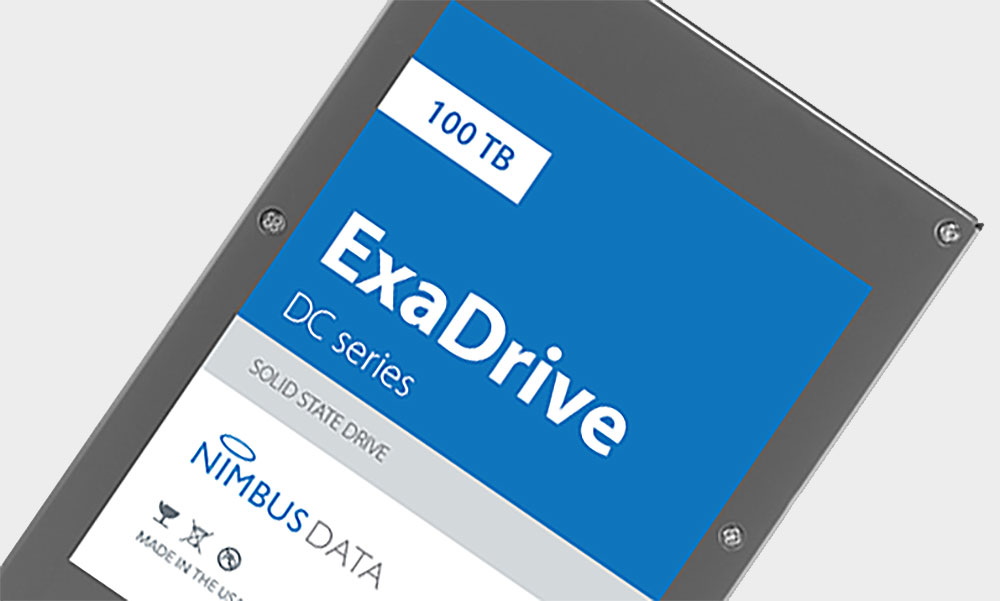Steam sales filling up your PC? This 100TB SSD is just $40,000...
The price of a 100TB SSD is higher than some luxury cars.

Nimbus Data launched its 100TB ExaDrive DC100 a little over two years ago and it remains the largest capacity solid state drive on the planet. It's also the most expensive—while not revealed at the time, Nimbus Data has finally let the public in on pricing, and sure enough it's expensive. As in, $40,000 kind of expensive (via TechRadar), which is a tick higher than the base price for a 2020 Lexus ES luxury sedan.
That works out to $0.40 per gigabyte, or higher if calculating the cost based on actual usable space. You lose around 7 percent of advertised storage in Windows due to over-provisioning (reserved space for various features and firmware updates) and how storage space is calculated. In binary, a kilobyte is 1,024 bytes, but driver makers use whole numbers to keep things neat and tidy... and more attractive to buyers.
If you don't want to crunch the numbers, there's a handy online calculator that coverts claimed capacity into recognized capacity. For a 100TB SSD, you're looking at roughly 93TB of usable space.
No matter how you slice it, $40,000 is a lot of scratch for a single storage drive, even a 100TB model. To put it into perspective, take a 1TB Corsair Force MP600, the best SSD if you're looking for a PCIe 4.0 model. It costs $194.99 on Newegg, or less that $0.20 per gigabyte. Or if you want to go in the opposite direction, $40,000 is precisely what the White Barn Inn in Kennebunk, Maine charged for a single Ruby Rose cocktail during its 40th anniversary (it came with a 4-carat ruby, though).
Nimbus Data also revealed pricing on its 50TB model, which offers a better bang-for-buck at $12,500. That works out to $250 per terabyte, versus $400 per terabyte on the 100TB model.

Best CPU for gaming: the top chips from Intel and AMD
Best graphics card: your perfect pixel-pusher awaits
Best SSD for gaming: get into the game ahead of the rest
The good news is, you wouldn't want to install these drives in your home PC anyway (you're still going to want a consumer SSD or traditional HDD for your Steam library). They're built for enterprise environments and ship in a chunkier 3.5-inch form factor rather than 2.5-inch, and use a SATA 6Gbps interface. Nimbus Data reckons the thicker design makes it easier for clients to upgrade their existing 3.5-inch HDDs with these drives.
It will be some time before we see this kind of SSD capacity in the consumer space. The closest we've gotten is Sabrent's Rocket Q 8TB SSD, which costs $1,499.99 (just under $0.19 per gigabyte).
Keep up to date with the most important stories and the best deals, as picked by the PC Gamer team.
Incidentally, we're currently testing that model and will have a review posted soon if you need to know whether you ought to be spending as much on a capacious SSD as on a full gaming PC.
Paul has been playing PC games and raking his knuckles on computer hardware since the Commodore 64. He does not have any tattoos, but thinks it would be cool to get one that reads LOAD"*",8,1. In his off time, he rides motorcycles and wrestles alligators (only one of those is true).


